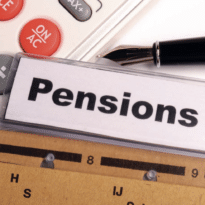Joshua Croft, technical consultant at AJ Bell, looks at where regulatory provisions make allowances for ‘genuine errors’ in pensions payments instead of counting them as unauthorised payments, on the basis that mistakes happen.
Because of the tax privileged nature of pension schemes the rules surrounding contributions and withdrawals are strictly set out. However, HMRC appreciate that in the day to day running of a pension scheme mistakes around benefit payments and contributions could occur, and the ‘genuine error’ provisions make allowances for this where there was no real intent for the payment to be made.
The concept of genuine error comes from HMRC guidance rather than legislation, so there is not a precise definition. One of the requirements is that “the payment is made in genuine error, such that there was no intention to make a payment to that extent or at all”. As well as this the guidance states the error must be rectified as soon as reasonably possible. The guidance provides examples of circumstances where a payment or contribution can be treated as a genuine error rather than an unauthorised payment (which would result in tax charges).
Where it can apply
Mostly, a genuine error will be caused by an inadvertent administrative failure outside the member’s control where the member’s precise intention was not carried out. This could be a transcription error by the scheme administrators or by an adviser leading to an incorrect benefit payment being paid. Providing the administrators are notified as soon as the error is uncovered the amounts could be returned to the pension under the genuine error provision and the member be put back into the position that they initially had intended.
For contribution errors, scheme administrators must again look at whether it’s outside the member’s control – for example an employer’s payroll failing to amend a direct debit contribution leading to an overpayment. As the error was by the employer and not the member, the genuine error provisions seem to allow for a refund of the contribution without this being viewed by HMRC as an unauthorised payment.
Where it does not apply
The genuine error guidelines only cover circumstances where the member’s precise intention was not carried out. They do not cover circumstances where there has been a misunderstanding of the rules or where the member has simply changed their mind after the fact. If a scheme administrator processes a benefit payment that the member requested which leads to them paying more income tax then they were expecting, for example, this alone is unlikely to be a valid reason to return the payment to the scheme, and HMRC could instead view the returned funds as a contribution.
Similarly, with contributions where the amount that was collected was correct, but the member calculated their figures incorrectly or simply wanted to pay a different amount this would not meet the requirements, so any refund runs the risk of being viewed by HMRC as an unauthorised payment.
Exceeding your annual allowance is also not an acceptable reason for refund under the genuine error provisions. The HMRC guidance clarifies that the annual allowance charge cannot be avoided by simply undoing a contribution. In fact not only will the individual still have made a pension input for that amount, the payment back to the individual is likely to be viewed an unauthorised payment.
It’s worth noting that the genuine error provisions only apply to pensions and not other tax wrappers, and HMRC have not created an equivalent concept in the ISA rules. For most ISAs this would not be an issue as there are fewer restrictions when making withdrawals, although it could have an impact on annual subscription allowances. Although care needs to be taken with ISAs that do have restrictions such as Lifetime ISAs and Junior ISAs – once a valid subscription is made it can only be withdrawn in line with the rules of those ISAs.
For pensions though, the rules do offer limited circumstances where a mistake outside of the member’s control can be rectified providing HMRC’s requirements on genuine error are met. As this comes from guidance rather than legislation different scheme administrators might arrive at different decisions.





























